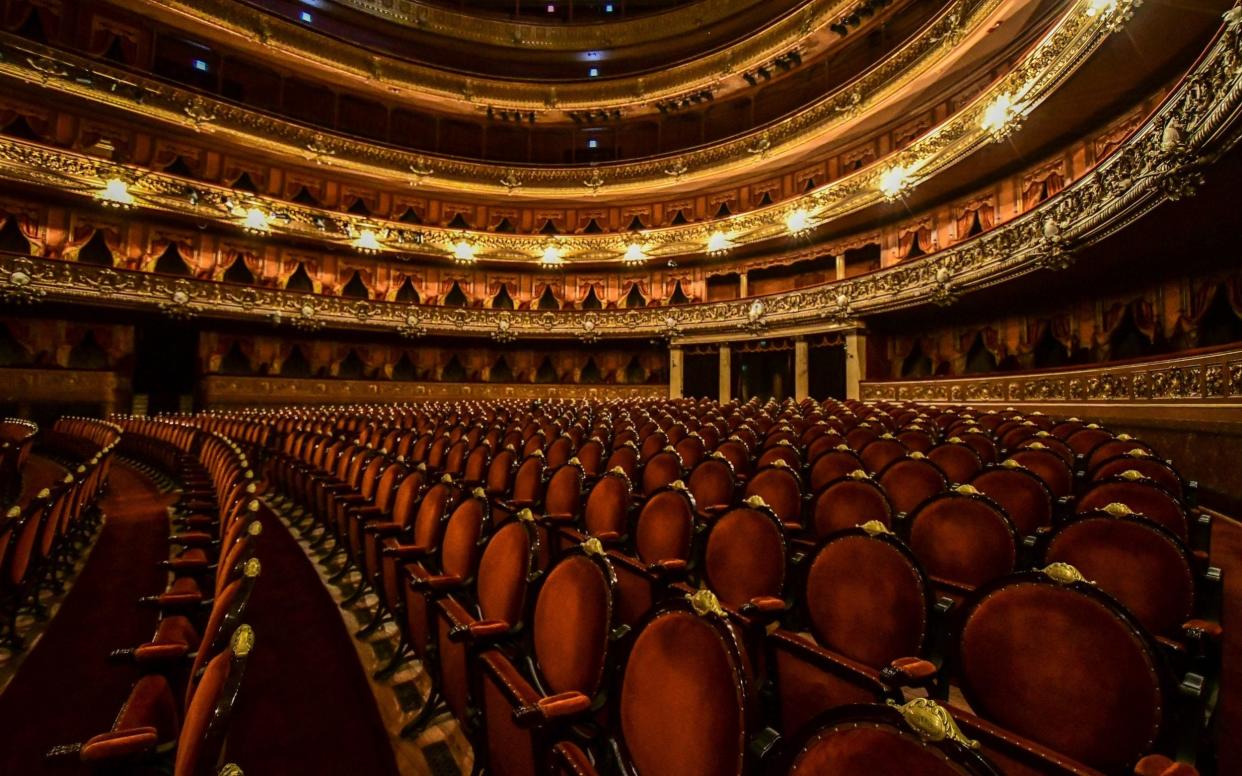When will cinemas, theatres and museums re-open?

The Government's new guidelines on easing the coronavirus lockdown in Britain will provide little comfort for arts organisations and audiences.
Most arts venues will be covered under "Step Three" of the official plan, which designates them "higher-risk businesses" due to the likelihood of coronavirus transmission within enclosed spaces.
These restrictions, under which virtually all of Britain's cultural life has ceased, will continue until at least July 4. Even after that point, the Government suggests only that "some" arts venues may be considered for re-opening.
Theatres, cinemas, concert halls and museums are unlikely to be released from the lockdown unless they can pass the Government's stringent tests and be declared "Covid-19 Secure". Much of this would require social distancing within the audience, which would dramatically reduce the venues' takings and therefore financial viability.
According to the latest document: "Some venues which are, by design, crowded and where it may prove difficult to enact distancing may still not be able to re-open safely [in July], or may be able to open safely only in part."
Whereas sporting events such as the Premier League are considering a restart behind closed doors, playing solely to an online audience, very few arts institutions or events would be able to survive without live spectators and the revenue they bring.
Theatre
Theatre insiders recently told The Telegraph that the autumn was the industry's general target for re-opening. Beyond this point, it is unclear how even the large operators could survive.
Cameron Mackintosh, the producer of Les Miserables and owner of eight West End theatres, has suggested that the difficulties involved in preparing a production mean that many theatres are already facing closure until 2021.
Mackintosh has also warned that the idea of social distancing in the auditorium "doesn't add up" financially. Under the new guidelines, it is unclear how theatres would be permitted to re-open at any point without accepting a drastic reduction in audience numbers.
Some major theatres have been streaming videos of their past productions during the pandemic. To continue doing this with new work, however, would be a financial strain that few venues could bear.
Cinema
Most of the summer's blockbuster films have been postponed or (in a handful of cases) redirected onto a straight-to-streaming path. Christopher Nolan's Tenet, the last remaining big-ticket film, is scheduled for release on July 17, two weeks after the Government's proposed date (July 4) for even considering the opening of arts venues.

Large cinema operators such as Vue recently voiced optimism to The Telegraph that they would be able to reduce audience numbers while recouping enough box-office receipts to stay viable.
Smaller operators and independent cinemas, however, may not be in such a fortunate position. Andrew Simpson of Newcastle's Tyneside Cinema warned that if the furlough scheme were withdrawn before audiences returned, his cinema would be doomed.
The nightmare scenario, he said, is "being allowed to open, the furlough ending at the same time, and audiences not showing up. We’re open, it’s dead, and there’s no government support."
Galleries and museums
Some of Europe's leading galleries, such as the Uffizi in Florence and the Royal Museums of Fine Arts in Brussels, are preparing to re-open under stringent health guidelines. These include the use of masks, the provision of hand sanitiser and frequent reminders to stay away from other visitors.
British galleries and museums have not yet announced plans to follow suit. The larger institutions, however, have more internal space than other arts venues, as well as a mobile audience, and as such they may find themselves in a better position to fulfil the Government's "Covid-19 Secure" tests.
Concert halls and gig venues
The classical music industry is facing widespread collapse. Many orchestras employ freelance musicians, who are not always supported by the Government's furlough scheme. Their venues are necessarily large and expensive to run, and it would be difficult to recoup the costs if an audience had to be socially-distanced.
Vasily Petrenko, chief conductor of the Royal Liverpool Philharmonic Orchestra, told The Telegraph that while innovative plans were being dreamed up around the country, the reality was simple: "Many institutions will simply not survive."
Although many classical-music institutions have streamed existing performances during the lockdown, with the aim of reaching a wider online audience, it would be difficult for any venue or orchestra to survive without a regular live audience.
The Proms is an exception to the usual model, being substantially funded through the BBC licence fee and only partially supported by box-office revenue. This week, however, the Royal Albert Hall's chief executive dampened hopes, telling The Telegraph that under current social-distancing rules, the Proms would still be "unviable", as crews would be unable to work and the bars would have to remain closed.
Rock, pop and jazz music venues may not face such vast overheads, but given the dearth of international travel, planning a series of lucrative gigs looks in any case impossible. Furthermore, given that these venues, by design, pack large numbers of people into small, atmospheric spaces, it is unclear how they will ever be able to adapt to the Government's current guidelines.

